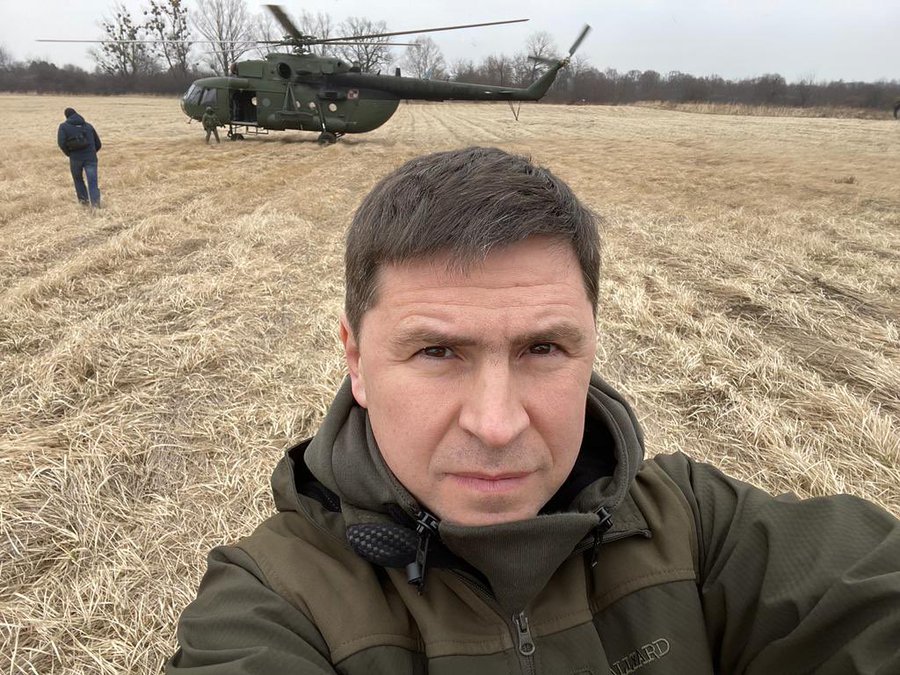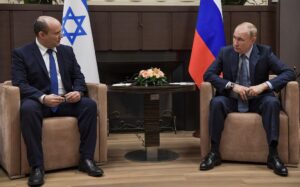The relentless Russian attacks against Kyiv and other Ukrainian cities continue amid negotiations between the two sides and mediation attempts by Israel and other countries.
The Russian forces are closing in on Kyiv. Its infantry and tank forces are positioned to attack the Ukrainian capital, according to the defence ministry of Ukraine. The UN Security Council will meet on Monday to discuss the war but with a certain Russian veto it will not be able to stop it.
The Ukrainian ministry of defence published operational information on the government portal after Sunday midnight, on the eleventh day of “the heroic resistance of the Ukrainian people to the Russian military invasion”.
According to the information, the Russian forces have not achieve their goals after eleven days of invasion. “The enemy group began to accumulate resources for the storming of Kyiv.”
“The Ukrainian forces continue to conduct a defence operation in the South, East and North. In the course of hostilities, the city of Chuhuiv was liberated. The occupiers suffered heavy losses in personnel and equipment.” The ministry mentions by name three high-ranking Russian officers who were killed in the fighting.
While the war continues, with broken agreements on ensuring safe humanitarian corridors from Ukrainian cities, President Zelensky’s advisor Mykhailo Podolyak tweeted on Monday that he continues to represent Ukraine in the third round of negotiations with Russia.
Despite the resumption of these negotiations, Kremlin continues to call on Ukraine to surrender unconditionally before it will agree to a cease-fire and to threaten surrounding countries that deliver arms to Ukraine to defend itself. The packages of sanctions adopted by the EU, the US and other countries have not yet deterred Russia from continuing the war or incentivized it to choose the path of diplomacy.
What about the attempts to mediate? As previously reported, Israel’s Prime-Minister Naftali Bennett flew to Moscow on Saturday and met with Russian President Vladimir Putin in an attempt to mediate between Ukraine and Russia. The meeting lasted reportedly for three hours but it is too early to assess if it was successful. After the meeting, Bennett reportedly called Ukraine’s President Zelensky a few times.
Bennett is not the only foreign leader who tried to mediate during the weekend. In a phone call with Turkish President Erdogan, the Russian President told him that Russia would only halt its “military operation” if Ukraine stopped fighting and Moscow’s demands were met.
Erdogan’s office issued a statement saying that an “immediate cease-fire will not only ease humanitarian concerns in the region but also give the search for a political solution an opportunity.”
On his return to Israel, Bennett did not sound optimistic. "I returned from Moscow and Berlin a few hours ago," he said at the weekly cabinet meeting on Sunday. “I went there to assist the dialogue between all of the sides, of course with the blessing and encouragement of all players.”
“As you all know, the situation on the ground is not good. The human suffering is great and is liable to be much greater. There are also Israelis who need to return home and Jewish communities in distress that need help.”
He could not go into greater detail but assured that Israel will continue to assist as needed. “Even if the chance is not great — as soon as there is even a small opening, and we have access to all sides and the capability — I see this as our moral obligation to make every effort.”
“It is in Israel's interest that the war between Russia and Ukraine ends,” Dr. Yonatan Freeman, an international relations expert at the Hebrew University of Jerusalem, told The Brussels Times.
“Israel has a chance to be in a very strong position when it comes to mediating between the West and Russia, as it has the ears of both Biden and Putin. One cannot rule out that Bennett brought a message from Biden and Zelensky to Putin and did the same when it came to Putin and his message to the West. Israel may be working for a ceasefire, or a temporary humanitarian one, to assist the civilian population there.”
“I won't be surprised if Bennett offered to meet again with Putin or next to meet with Ukrainian officials, or to send someone on his behalf. As Israel’s diplomatic power grows, so does its responsibility and the expectations of the international community that Jerusalem becomes involved in the mediation efforts to bring about a cease-fire.”
M. Apelblat
The Brussels Times


